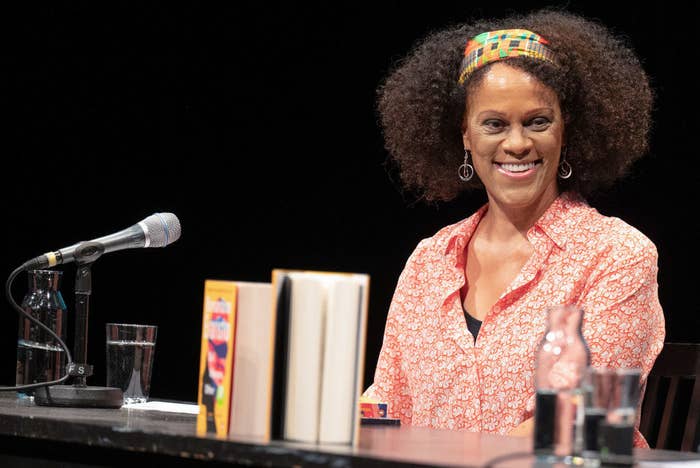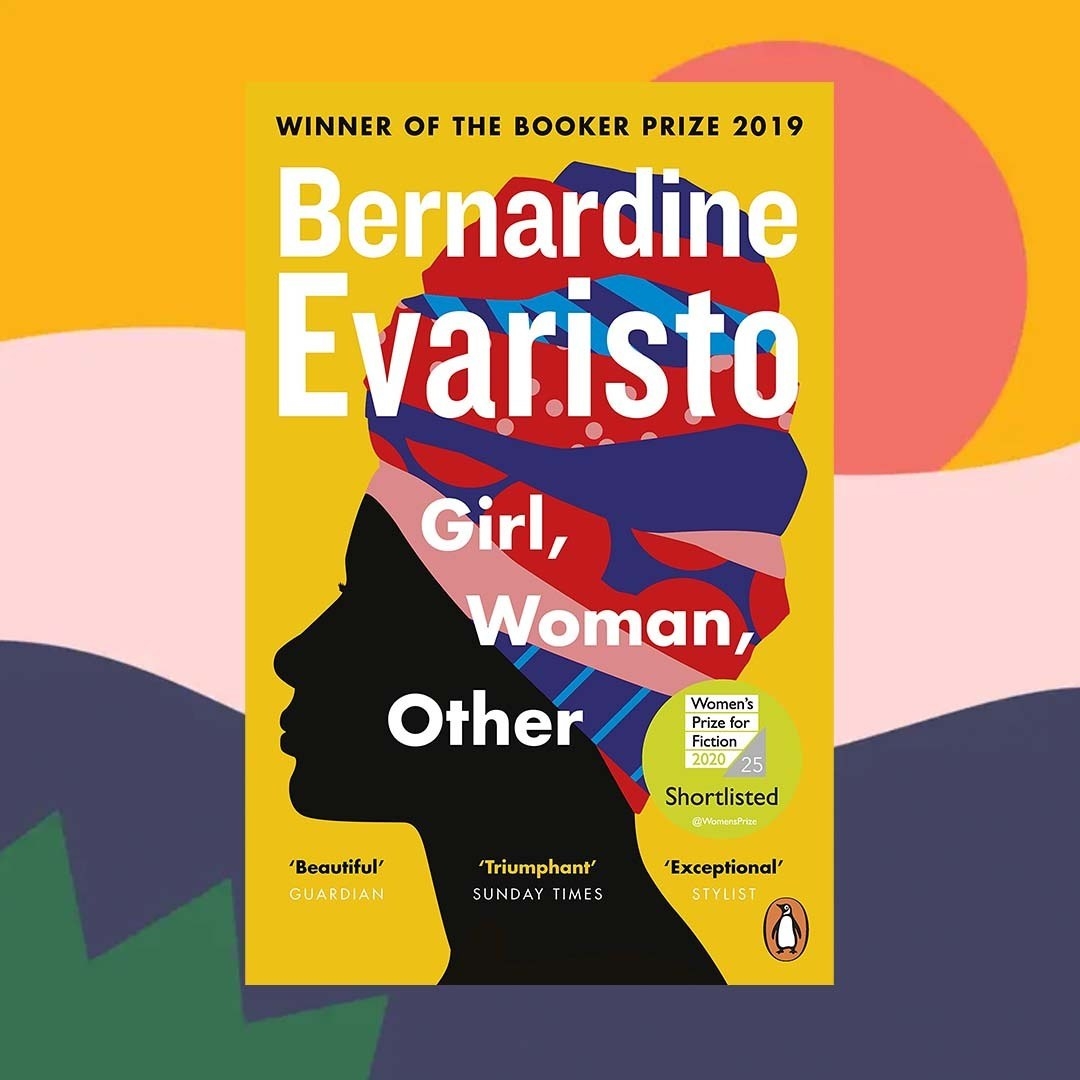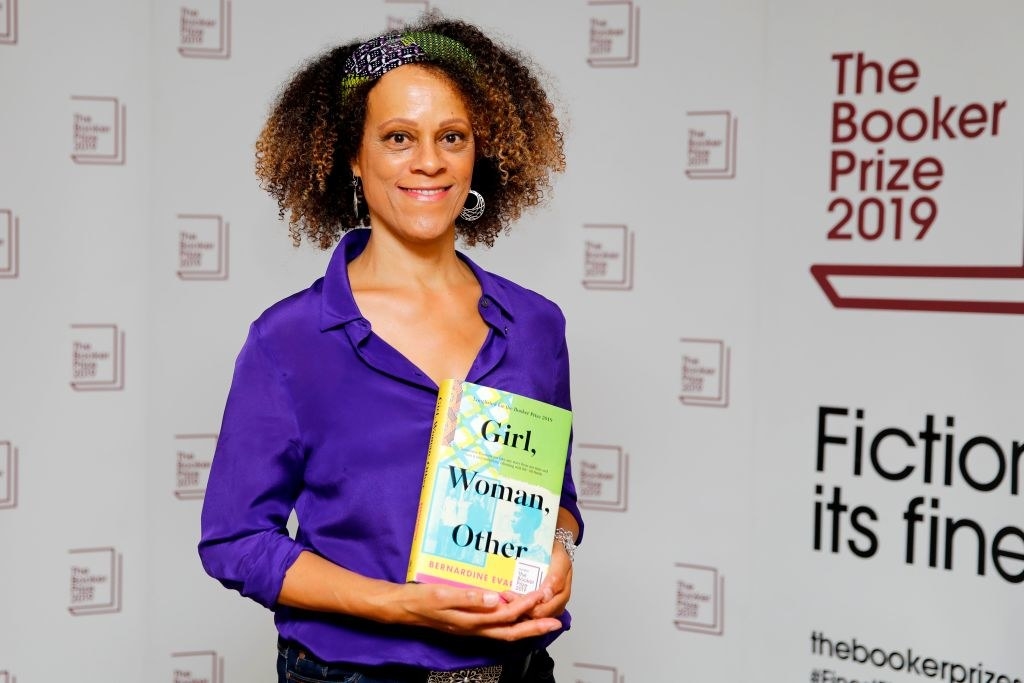🚨🚨🚨 Massive spoilers for Girl, Woman, Other ahead! 🚨🚨🚨

1. Inspired by Amma's free, unapologetic life
Amma is the first character the reader is introduced to, and she was honestly a great place to start. Amma is an openly polyamorous out lesbian who is outspoken about social issues and refuses to restrict her personality for anyone. Seeing her have a happy life without having to conform or abandon her morals was really inspirational – she was one of my favourite characters in the whole book, TBH.
2. Sadness at the domestic abuse Dominique faces.
The second chapter tells the story of Dominique, who falls in love with an American woman and moves to an all-female commune in the U.S. There she spends years trapped in an increasingly abusive relationship, eventually escaping and finding true love with another woman. Domestic abuse in queer relationships isn't often discussed, so I was glad that Evaristo included this even if it was heartbreaking to read.
3. Frustrated by Penelope's racist attitude.
In Penelope's chapter we learn that she was raised to believe white people were naturally superior by her entitled mother. She becomes a teacher who laments more immigrants moving into the neighbourhood, meaning she has to teach their kids. This was another annoyingly realistic element because it's so frustrating to see someone look down on the literal children they're supposed to be helping because of their skin. But sadly there are some Penelopes out there.
4. Hope that even stubborn people can change.
Penelope holds on to her ideas about race for decades, until she takes an Ancestry DNA test and finds her mixed race birth mother. Reading about Penelope discovering her heritage and in turn, realising that skin colour shouldn't have mattered to her gave me hope that people can change. Even though it took her many years, it only takes a moment to make the change.

5. Insight into different experiences.
One of the reasons this book is so great is that it tells the stories of 12 very different women – their stories vary so much that as a reader, you learn so much about different cultures from around the world. I had no idea that all-female communities existed in the US, let alone that Evaristo actually did live as a lesbian in a feminist community for a decade (with a more positive experience than Dominique). I also learned about some experiences of Muslim women from Yazz's university friend, who educates her on why she chooses to wear a hijab her way.
6. Happiness for Morgan as they live their best queer life.
Morgan's story starts out rocky, but once they meet BiBi and learn about trans and non-binary identities they become comfortable with their identity. I was happy that Morgan made decisions for themselves instead of feeling pressured by their parents or peers, and built a successful career as a trans advocate out of their experiences. I love when a queer character gets a happy ending.
7. Amusement at (but also respect for) Roland's whole energy.
Intially I found Roland's over the top grandiose attitude and the way everyone around him goes into eye-roll mode during his long speeches funny. But in the final chapter we get some insight into his character as we realise that his attitude is an act rather than arrogance. Roland himself muses about why he doesn't like bringing race into things because he wants to just be known for his work instead of reduced to his identity – this reminded me that people are multi-faceted and there's always more than meets the eye.

8. Sympathy for the matriachs and the sacrifces they make for their families.
The matriarchs are often the unsung heroes of a family. Three such women who stood out to me in this novel were Bummi, Hattie, and Grace. Bummi sleeps with a priest to get a business loan and breaks off a relationship because she can't shake the feeling that her same-sex attraction is wrong, Hattie knows most of her family are waiting for her to die in the hope that they'll get her land, and Grace struggles with post-partum depression after multiple miscarriages. Each of them works to provide for their families and deals with struggles that they often feel they need to keep buried.
9. Optimism that people can become successful despite setbacks.
After reading this novel, I learned that Evaristo co-founded the first Black women's theatre company, so some of the character's experiences clearly took inspiration from her own life. She already had a longstanding career before the Booker Prize win boosted her even further. The characters' stories and Evaristo's own career reminded me that even when there are setbacks or delays, you can build a successful career and be recognised for it. From Amma's theatre work to Bummi's cleaning business, these women inspired me to persist in creating my own successful future.

